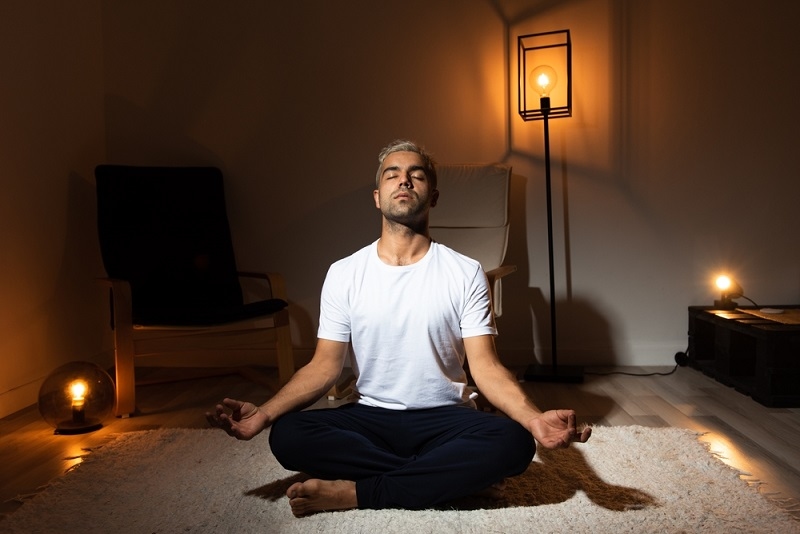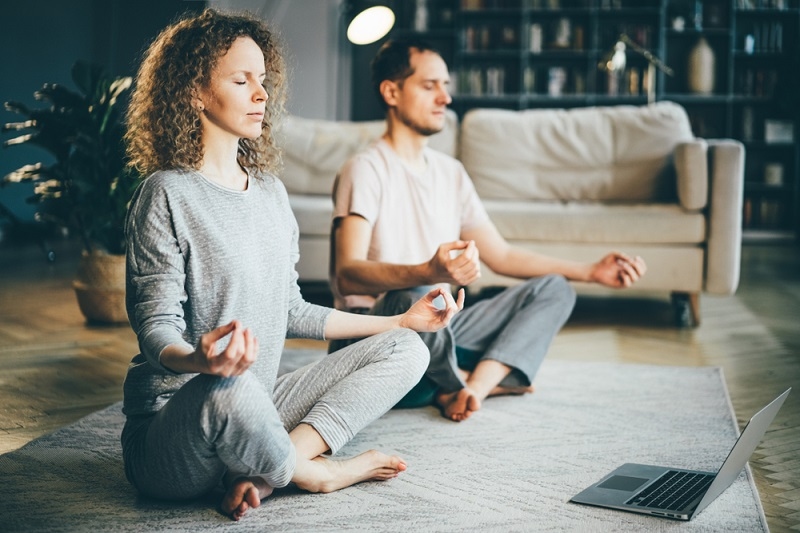
Stress has become part of people's daily lives today. People are pressured by work, family obligations, and anything else that can affect their health and peace of mind. Meditation techniques are one of the best strategies for dealing with stress. They help with stress reduction and help restore one's personal resiliency, so that you meet the stressors in your life from a calm place with clarity.
Meditation is ancient and has been used by cultures for centuries. It is also used to heal the mind, body, and spirit. Although it has been a spiritual practice in history, science and medicine have acknowledged meditation as an acceptable process for health, well-being, and mental health.
This blog highlights the basic and effective Meditation practices that provide the perfect fit for anyone who is new to Meditation or is looking to enrich their daily practice.
Meditation, as such, is about sharpening one’s mental capabilities. In the same way that physically working out keeps the body in shape, Meditation strengthens one’s mental focus, emotional balance, and the ability to endure. A lot of people visualize Meditation as a person sitting quietly with closed eyes, but it is actually more than that. It involves concentrating, living in the present moment, and gently managing one’s thoughts without judging them.
With regular practice, people get to experience reduced stress levels, improved focus, and greater capacity to keep calm even in crises. This is the very reason why most people resort to Meditation in difficult moments and thus use it as a natural instrument of relaxation and development.
Starting a different task is almost always intimidating, but for beginners, Meditation should not be a hard nut to crack. The most effective means of doing this is to keep everything simple and within reach. A lot of folks think it is necessary for them to sit motionless and for hours, while the truth is that even just a couple of minutes will bring positive results.
Below is the guide to the simplest way of getting down to work:
Beginners often find themselves with wandering thoughts while practicing, but they should not get discouraged since it is a common thing. The important thing is not to engage with the distractions but to recognize them and go back to the here and now. Through perseverance and constant sessions, Meditation gradually becomes more feasible and more natural.

One of the most sought-after benefits of Meditation is the elimination of stress. Daily stressors tend to elicit negative feelings together with bodily tensions. If this situation persists, it will severely affect one’s health, resulting in sleeping problems, headaches, or even serious illnesses over time.
Stress alleviation meditation is stress relief that energizes the body by releasing the breath deeply, slowly lowering the heart rate and thus the production of stress hormones. The same can be said about breathing deeply, body-scanning, and relaxation techniques, among others.
For example, in a body scan, the participant moves from head to toe, feeling and releasing each part. With this release, the body is relaxed and the mind becomes more aware of one's stress condition. Through frequent exposure to these exercises, people develop a feeling of calm that is lasting.
Another advantage of meditation is that it brings about better concentration. In a world full of distractions — emails, notifications, and endless tasks — staying focused can become a real challenge. Thus, it is here that meditation for focus shows its utility.
One can only focus on one thing when one has mastered the skill of attention-based exercises. This one task can be watching the breaths or observing a candle flame for a given time. Whenever you find that the mind has drifted, direct it back to the point under focus.
This process gradually tightens mental discipline. A lot of students, workers, and artists use this technique to enhance their productivity and clarity of thought. Besides, it does not only become a boon in terms of your career but also when it comes to making personal decisions since concentration is an important factor in better judgment over time.
One more means to raise resiliency and drop pressure is the formation of mindfulness meditation habits. Mindfulness really means putting all your attention on the present moment. It does not mean getting away with your issues, but rather witnessing them without any judgment.
Say, in eating, mindfulness would be feeling the taste, texture, and smell of the food and not going through the meal quickly. While walking, you would be feeling the ground underneath your feet or listening to the sound of your breathing.
The gift of meditation, among many, is none other than the building of the inner calm. One can never go through life without facing some difficulties but through Meditation, people get the supporting tools to keep calm in the midst of chaos.
Inner calm is not trying to suppress the issue but rather dealing with it by giving space to clarity and patience. When the mind is quiet, one can see more solutions and make decisions that not under the influence of fear or anger.
Meditation has so many different methods, and every individual can find one that suits them best. The following are some of the common methods:
Each method has its peculiar benefits. Some people may opt for silent Meditation, whereas others may find it more convenient to do guided sessions. The main thing is to try to find what suits you best.
Resilience refers to the ability of a person to recover from hardships. One of the ways whereby Meditation can help you to develop this skill is by having a strong mind and stable emotions. People who frequently do Meditation are those who are less affected by stress and are more adaptable to difficult situations.
Instead of sinking into despair due to problems, Meditation equips you with the virtues of patience and the ability to see the bigger picture. It creates a moment of separation between a stressful event and the reaction to it. This moment gives you room to decide on a calmer and healthier reaction.
Meditation is not just a method for relaxation; it is a considerable part of life, and it is a tool for growth and resilience. Different meditation exercises can help manage stress simply, focus better, and build emotional strength. The benefits are very close to reaching whether one is a complete beginner in Meditation and is just starting out with Meditation for focus and concentration, or is hoping to create steady mindfulness meditation habits.
The ability to be grounded is one of the most amazing qualities that an individual can develop in a world with endless uncertainty.
This content was created by AI